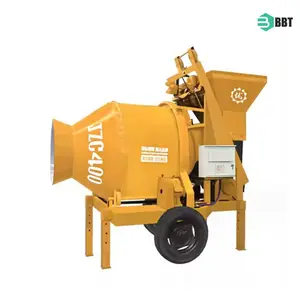

Building Construction Tools Concrete Mixer Machine Vibrated Blocks Mixer Electric Concrete Mixer For Price


1.5M3 Hydraulic Concrete Mixing Self Loading Concrete Mixer Trucks 3m3 4m3 5m3 Self Loading Concrete Mixer Truck












Concrete mixers are pivotal in the construction industry, providing the means to efficiently prepare concrete mixtures of varying strengths tailored to specific project requirements. The concrete mixer capacity is a critical factor to consider, as it dictates the volume of concrete that can be mixed at one time. This capacity is often measured in cubic meters (concrete mixer capacity m3), which directly correlates to the scale of construction tasks it can handle.
The construction sector utilizes various types of mixers with different capacities. The capacity of a cement truck, for instance, is designed for large-scale operations, delivering large volumes of concrete to sites. In contrast, a 1 bagger mixer capacity is more suited for smaller projects. The capacity of transit mixer falls in between, offering flexibility for mid-sized constructions. Each type serves a unique purpose, from the ajax concrete mixer capacity m3 known for its advanced technology to the ready mix truck capacity optimized for delivering pre-mixed concrete.
Selecting a mixer with the appropriate concrete mixer machine capacity is crucial for operational efficiency. A concrete lorry capacity that matches the demand of a construction project can save time and reduce physical strain. For larger projects, a concrete mixer truck capacity that aligns with continuous production needs is essential, while the cement mixer truck capacity is vital for transporting ready-to-use concrete to various sites.
Beyond the concrete mixer volume, several features are important when selecting the right mixer. The rmc truck capacity should be considered alongside the mixer's durability, ease of operation, and the type of mixing technology it employs. Whether it's for a ready mix concrete truck capacity or a smaller one bagger mixer capacity, the efficiency of the mixer in terms of speed and quality of mix should guide the decision-making process.
The construction and materials used in manufacturing mixers are as important as the concrete truck capacity m3. High-grade materials ensure longevity and consistent performance, which is crucial for mixers of all capacities, from the smallest transit mixer capacity in m3 to the largest concrete mixer truck capacity m3. The robustness of a mixer impacts its ability to handle different types of concrete mixes and aggregate sizes.
In conclusion, understanding the various aspects of concrete mixer capacity is essential for making an informed decision that aligns with construction needs. Considering the type, volume, and features of a concrete mixer will lead to improved efficiency and productivity on the job site. When selecting a mixer, it's important to assess the specific requirements of your construction projects to find a balance between capacity, functionality, and cost-effectiveness.